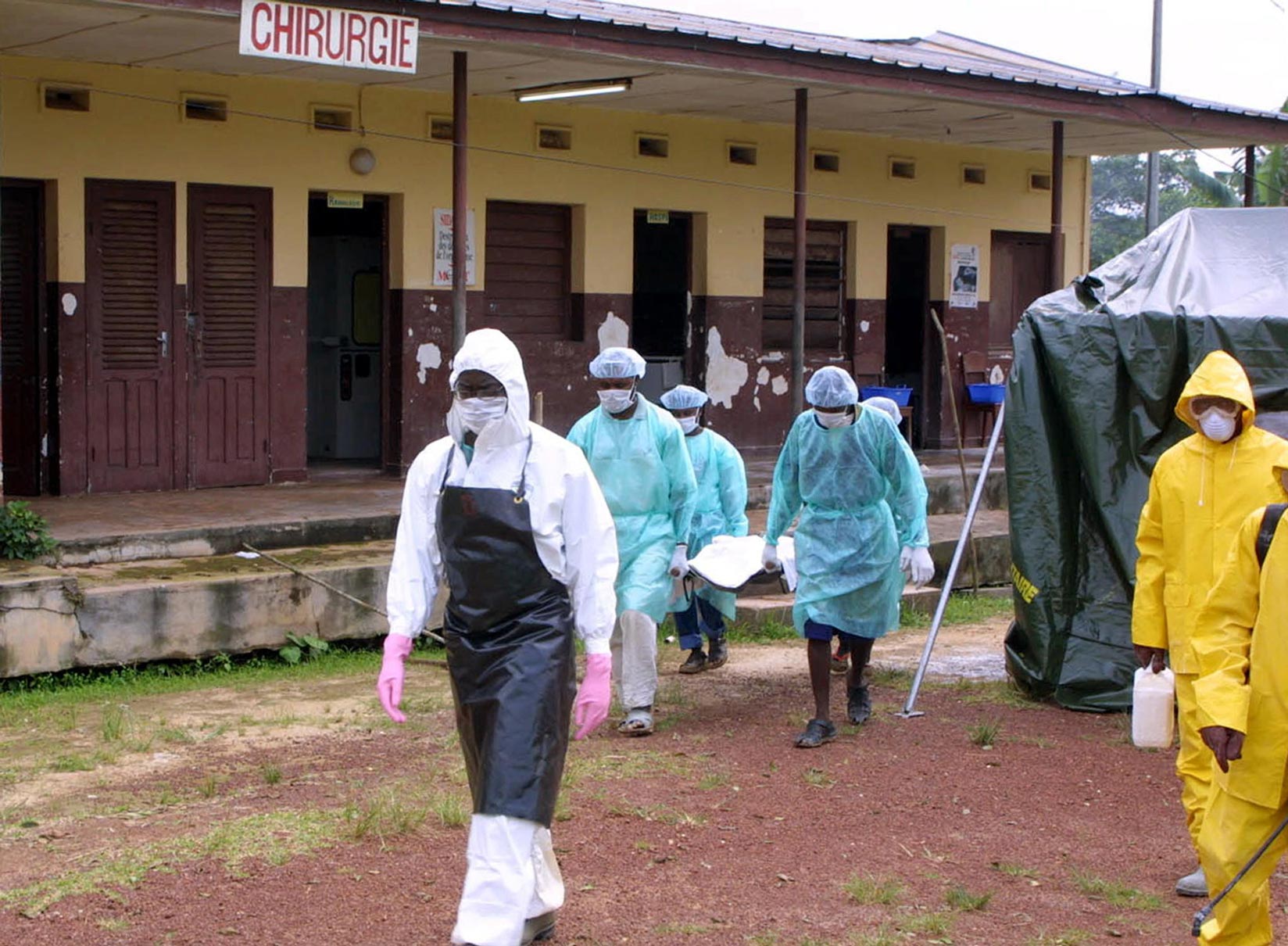Every region of Liberia has now been hit by Ebola, officials said Friday, August 22, 2014 as other affected west African nations scrambled to contain the spread of the killer virus.
After seeing people fall to the deadly disease in area after area, Liberia said two people had succumbed to the virus in Sinoe province, the last Ebola-free bastion in a country that has seen the biggest toll with 576 deaths.
The virus has spread relentlessly through Liberia, Guinea and Sierra Leone over the past months, killing 1,350 people since March, and Nigeria has also been affected despite showing some progress in fighting the epidemic.
“(Sinoe) was the last area untouched by Ebola,” George Williams, head of the Health Workers Association of Liberia, told AFP.
The country has witnessed chaotic scenes in recent days following a surge in the number of patients dying of the hemorrhagic fever.
Aid workers said crematoriums in the capital of Monrovia were struggling to deal with dozens of bodies arriving every day, and earlier this week, violence erupted in an Ebola quarantine zone in the capital after soldiers opened fire on protesting crowds.
In bad news for neighbouring Nigeria, officials said Friday, August 22, 2014 that two more people had tested positive for Ebola, taking the total number of confirmed cases to 14, including five deaths.
The World Health Organization (WHO) said earlier this week that it was encouraged by the situation in Africa’s most populous country, given that all of the confirmed cases came from a single chain of transmission.
But the country’s health minister Onyebuchi Chukwu told a news conference in Abuja that the two new cases were the first to contract the virus from a secondary source.
Most of the deaths in what has become the worst-ever outbreak of Ebola have occurred in Guinea, Liberia and Sierra Leone.
David Nabarro, a British physician appointed by the United Nations last week to coordinate the global response to the crisis, was in Monrovia on Friday for the second day of a tour of the region.
Speaking to AFP during a stopover at Conakry airport en route to Monrovia, he said he was determined to “ensure that every piece of our apparatus is at its optimum so it could deal possibly with a flare-up if that’s necessary”.
Nabarro is also due to visit Freetown, Conakry and Abuja during the trip, where he is tasked with revitalising the health sectors of affected countries.
Authorities in the region have been hampered in their fight against Ebola by the deaths of several top health officials and numerous frontline doctors to the virus.
No cure or vaccine is currently available for the deadly disease, which is spread by close contact with body fluids, meaning patients must be isolated.
However, two American missionaries who contracted Ebola while treating patients in Liberia left hospital in the United States in recent days after making a full recovery. The two were treated with experimental drugs.
The failure of west African countries to bring the epidemic under control has worried its neighbours and nations further afield.
Senegal on Thursday, August 21, 2014 closed its land border with Guinea, where 396 people have died to date, in an attempt to stop the epidemic reaching it.
Many flights to the region have been cancelled, and authorities around the world have adopted measures to screen travellers arriving from affected nations.
Air France is one of the few airlines running daily routes to and from Sierra Leone. On a flight this week from Freetown to Paris, via the Guinean capital Conakry, fear of the virus was ubiquitous.
“I had to close my textile shop and return to China,” said Wu Guo Gang, 60, on the flight with his wife.
“Many Chinese are leaving. If they stay, they may die,” he added.
In a further effort to contain the epidemic, Sierra Leone’s parliament passed a law on Friday, August 22, 2014 that imposes a two year jail term for anyone concealing an Ebola-infected patient.
Meanwhile, as fears grow that the outbreak will spread across Africa, DR Congo’s Health Minister Felix Kabange Numbi said a fever of unidentified origin had killed 13 people in the country’s northwest since , Tuesday, August 11, 2014.
But a WHO official and the medical charity Doctors Without Borders (MSF) said Friday, August 22, 2014 it was too soon to tell whether a haemorrhagic fever caused the deaths.
Ebola was first identified in 1976 in Equateur in the former Zaire, today the DRC.







